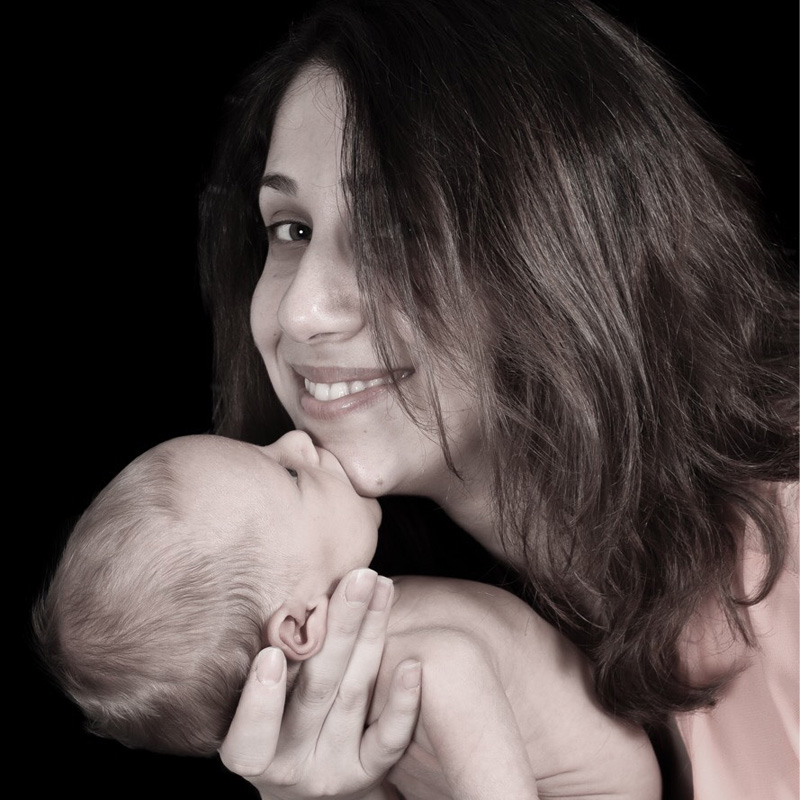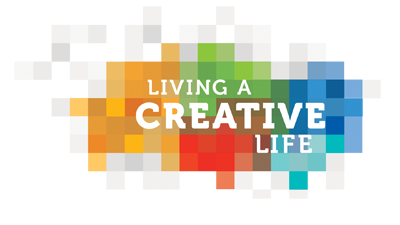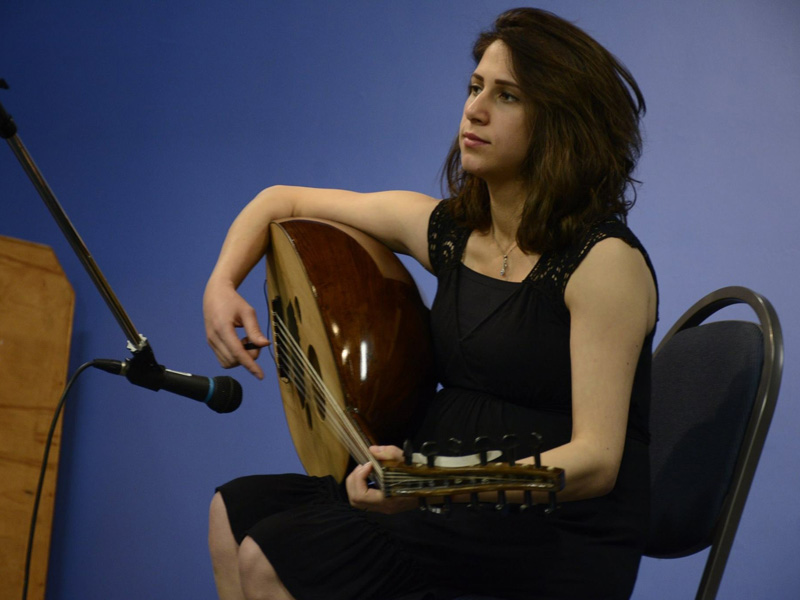Aya Mhana
Syrian singer-songwriter works to make Calgary home
They say moving is the second most stressful activity, after divorce. Imagine, then, moving—not across the street, or from Calgary to Toronto or Houston—but across the planet, from Suwayda, Syria, to Calgary, with your husband and young daughter, and you will only catch a glimmer of what it’s like to be Aya Mhana.
Now, throw in the fact that Mhana, who graduated with a degree in education from the University of Damascus, is also an accomplished singer-songwriter, someone who performed in festivals in Suwayda and Damascus, singing ballads in Arabic—and you’re talking about a challenging cultural transition.
On the upside, Mhana is lucky enough to have come from an ancient city of 300,000, near the Jordanian border, that was actually a safe haven—a place where people fled to in order to escape the war.
“It’s between a village and a city,” says Mhana. “It’s nice to live. Nice weather. Nice people.”
It was while working in Suwayda as a volunteer with organizations such as Syrian Arab Red Crescent and the International Orthodox Christian Charities that she was exposed first-hand to the plight of refugees seeking safe haven from the war.
Now, Mhana lives with her husband and young daughter in their second place in Calgary. (They started out in an apartment downtown, and have since relocated to a second place closer to her sister, who also lives here.)
Since arriving in Canada early in 2016, Mhana has been engaged in making a double transition.
One is the transition we all make when we move someplace new—or even travel to a city not our own.
Displacement can turn everyday activities into adventure stories in a minor key.
“From the small things to the large things, it’s a challenge,” she says, “because if you want to buy something, or to eat something, maybe you will think about [how to do] that.
“It’s a [kind of] terrifying everyday experience,” she adds. “How can I cross the street and get to that mall and just buy these things and then go safely back home? When you think about that, it’s [actually] a huge experience!
“We are still discovering this place,” she says. “We don’t know it yet.”

Second, there is the question of making the transition from Syrian singer-songwriter to Western Canadian singer-songwriter.
How does that work?
Back in Suwayda, Mhana sang original work, some of it dark and spiritual, much of it inspired by her work with those charitable organizations.
“I played my own music,” she says, “my own songs, in Arabic. People liked that, especially when I spoke about the situation there, after the war.
“I explained human suffering [in my songs],” she says, “and I explored [the idea of], how can you still find hope in the middle of a war?
“I spoke about specific things,” she says. “They were emotional and touching songs for my city.”
What made the situation even more challenging was the fact that Mhana often found herself performing for Syrians who were barely aware there was even a war happening.
“I was sharing a message with people who never knew about the war or went through the war,” she says, “so it was like a connecting point between the hot area [of Syria] and the cold one.”
In a way, Mhana was acting as a kind of translator in her own country.
Now, after less than a year in a new country, she finds herself tasked with a very different sort of translation: Communicating the rich spirit of her musical culture for people who don’t know anything about it, speak the same language, or have the same musical references. (Hers include Nobel Prize winning Palestinian poet Mahmoud Darwish. She promises to look up some of the new Canadian names she learned in our interview, like Joni Mitchell and Neil Young, on YouTube.)
“I’m trying to send that message for these people,” she says, “but I am not able to translate my songs yet. I am not able to sing in English—but I am trying [to learn how].
“It’s a big challenge, a new challenge for me,” she says, “but this is what I like.”
Now, Mhana lives in a wealthy, peaceful part of the world that is helping resettle migrants displaced around the world.
She’s still writing, only she’s changed the theme of her music.
“[Before], I composed about sadness,” she says. “It’s enough.”
In fact, Enough is the title of one her new songs.
“Because,” she says, “this is the life.”
Does changing countries change your life?
“It’s a better future for us in Calgary,” she says. “When we adapt to living here, it will be a great chance to change our past, to change our life—because even though it was a safe place to live–Suwayda was a safe city–it’s not a good city to live in now.
“You will not feel safe,” she says. “You will not feel you have a [hopeful] future to keep going, and to have a better life—so I think being here is better [for me and my family], for sure.”
And while it’s daunting, performing original compositions in Arabic for Calgary audiences, Mhana is slowly making inroads into the city’s musical community. She has formed a band, Hymn, with a musician from Iran and another from Turkey, all of whom live now in Calgary.
Hymn perform at the Bella Concert Hall | Video: HYMN hymnmelodies
She’s already performed at Stampede and Globalfest, in the rain, as well as with the Kensington Sinfonia. Performing on an oud, an ancient instrument that’s a kind of Middle Eastern mandolin, she has her eyes on performing for more Calgarians in 2017, possibly at Canada Day celebrations in Prince’s Island Park.
Why live a creative life, when just adapting to her new one is filled with challenges and obstacles?
“When you have [followed] your own way, it’s more difficult,” Mhana says. “It’s not the easy way [for a musician].
“You don’t [always] know what’s there, and you don’t know where you’re going sometimes. It’s a big challenge for any musician. But you are doing something different.”
About The Storytelling Project
 On November 16, 2015, Calgary Arts Development hosted a working session with approximately 30 creative Calgarians from various walks of life. Many of the small working groups voiced the need to gather and share more stories of people living creative lives.
On November 16, 2015, Calgary Arts Development hosted a working session with approximately 30 creative Calgarians from various walks of life. Many of the small working groups voiced the need to gather and share more stories of people living creative lives.
That need has turned into The Storytelling Project.
The Storytelling Project raises awareness about Calgarians who, by living creative lives, are making Calgary a better city, effecting positive change and enriching others’ lives.
Have a story to share? Email us at news@calgaryartsdevelopment.com.
